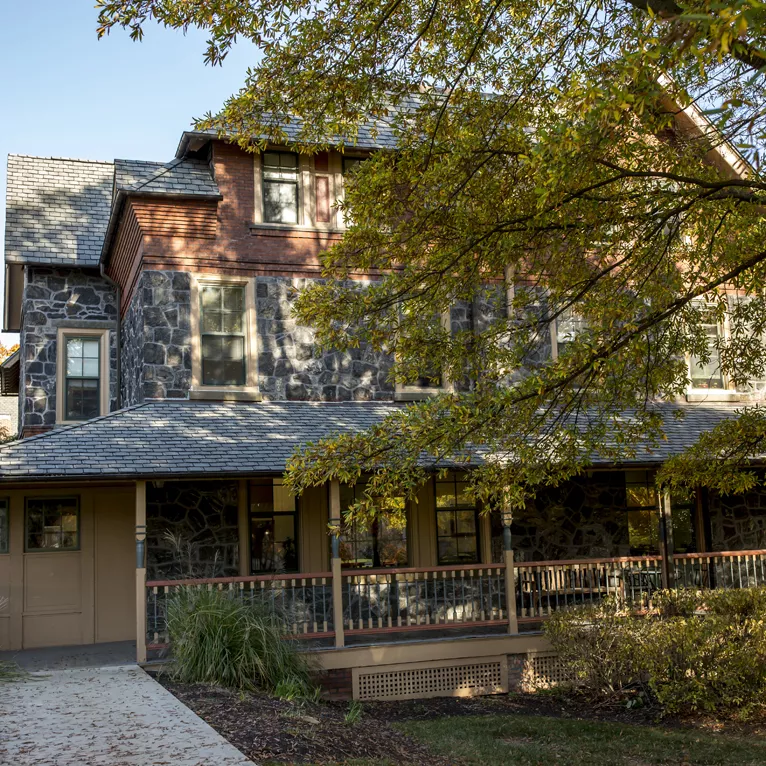Club Resources
Bryn Mawr College alumnae/i are fortunate to have a multitude of geographic clubs across the globe. Clubs play a vital role in our community by connecting alumnae/i to each other and the College as well as facilitating professional and personal networks among our graduates. As a club leader, you are an integral part of making these connections happen and because of your service, the Alumnae Association continues to Lift the Lantern High around the world.
The Club Handbook was created to help you understand your roles and responsibilities as Club officers and to make your job easier. It provides general guidelines for Clubs, suggestions, and resources that can be used to build community within your area. Thank you for the important work you are doing and for the vital link you are creating with Bryn Mawr College.
- Organizing a Bryn Mawr Club
- Organizing a Bryn Mawr Regional Group
- Planning for a Faculty Speaker
- Forms and Reports - contact clubs@brynmawr.edu
- Club Handbook - contact clubs@brynmawr.edu
Financial Information
Club treasurers are responsible for maintaining the club's treasury for the duration of their term.
- The outgoing treasurer should turn over all financial statements, records, and other related materials promptly to the newly elected treasurer at the conclusion of her term.
- Newly elected treasurers should perform an audit of the financial records and have a clear understanding of the club’s financial history. The transfer of financial records should occur following the close of the fiscal year.
- A club’s financial records should be maintained on a computer accounting / spreadsheet system.
- Club funds are to be used solely to benefit the club. The treasury is maintained to meet club obligations including the printing and mailing of newsletters and the expenses for club activities
- Treasurers are required to file the year-end financial statement with the Alumnae Association. The Alumnae Association provides a form for this purpose. Please contact the Associate Director of Regional Alumnae Engagement for the template.
- At the club’s annual meeting, the treasurer is also required to report on the financial condition of the club. In accordance with the bylaws and the Federal regulations governing tax-exempt status, treasurers must adhere to rules governing disclosure of the club's financial status.
- No matter the size of the club, it is useful to maintain a budget to serve as a guide for planning.
Dues generate income to support a formal club’s operating expenses and activities. The level of dues depends on the club’s plans and goals. Dues are only tax deductible if the club has its own 501(c)(3) or 501(c)(7) exemption with the IRS.
The club treasurer should open the bank account as the principal signature authority. A second officer, usually the president, should have signing authority as well. The account should be opened in the name of the club. To open a bank account the treasurer will need an Employer Identification Number (EIN number). If your club does not have an EIN, please contact clubs@brynmawr.edu for instructions on how to obtain one.
Most of the expenses of running the club are covered by the club treasury. Occasionally, an alum will prefer to pay club activity expenses out-of-pocket as a contribution to the College. In this case, the alum can receive a tax deduction voucher by submitting appropriate documentation of qualified expenses to the Association. Please contact cwashing@brynmawr.edu for further information.
Under Section 501(c)(3) of the Internal Revenue Service Code, the Bryn Mawr Alumnae Association is a “charitable or educational organization” thus exempt from paying federal income taxes and contributions to this organization are income tax deductible. These tax advantages are also available to clubs and groups associated with the Alumnae Association in an umbrella arrangement. Contact the Association’s Accounting Specialist for more information.
Because state laws vary, each club should consult an accountant or local tax office for information about state and local filing requirements. If your club is in a city or state with a sales tax and you anticipate many purchases, it would be to your advantage to file the appropriate form for state or city sales tax exemption, Sales tax exemptions are not available in all states. The College has sales tax exemptions for some states. Contact tryan@brynmawr.edu for copies of these exemptions.
Clubs must adhere to the following two procedures in order to maintain tax-exempt status: A club that receives tax-deductible contributions and disburses money must have a separate account in its own name; and club funds must not be commingled with any other bank account at any time, however temporary.
In addition to reporting annually to the IRS, some clubs are required, because of location, size, and/or financial status, to have an annual professional audit. Even if this is not a government requirement for your particular club, you might want to have the club's books audited by a paid or volunteer accountant who is not a club officer.
In most cases, insurance for events is provided under the umbrella policy of the venue in which the event is held. Please contact cwashing@brynmawr.edu with questions about specific insurance issues. Insurance requests will be reviewed on a case-by-case basis.
Explore Alumnae/i Relations and Development

Contact Us
Alumnae/i Relations and Development
Helfarian
101 North Merion Avenue
Bryn Mawr, PA 19010
Phone: 610-526-5532
Fax: 610-526-5228
bmcalum@brynmawr.edu